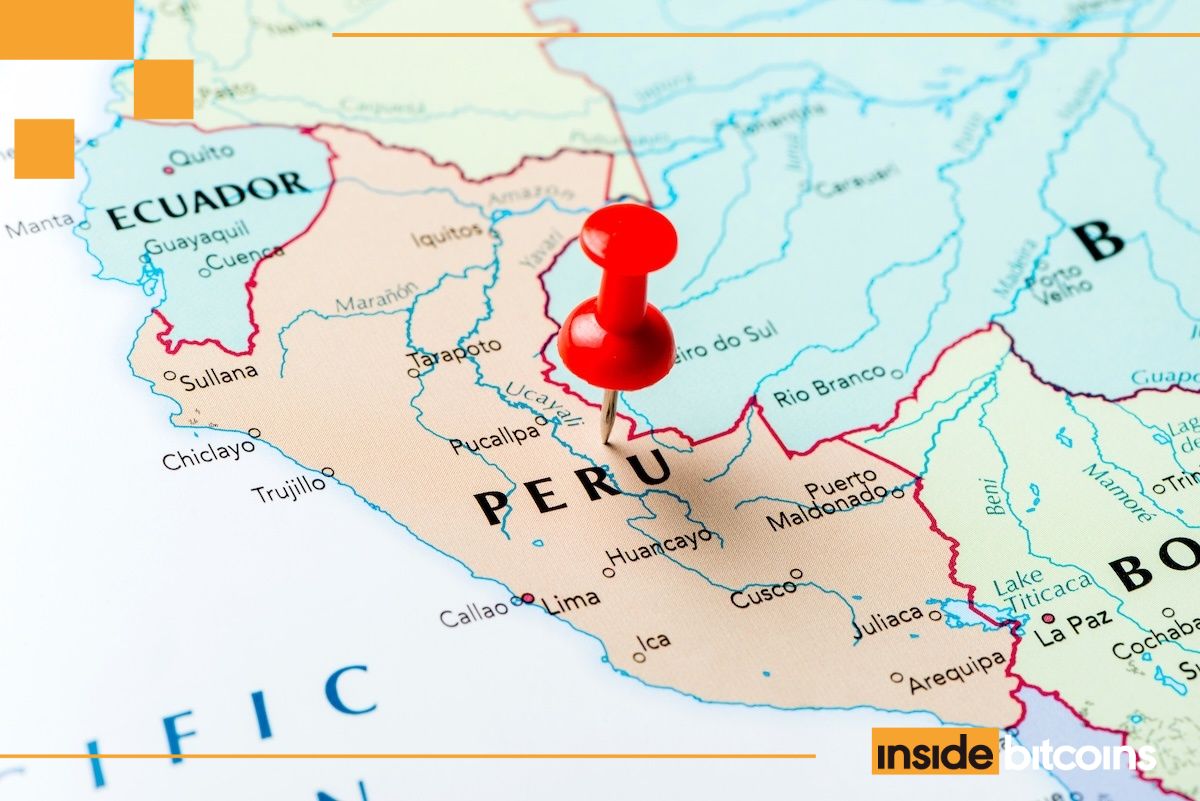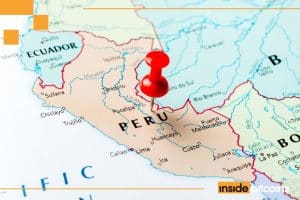Join Our Telegram channel to stay up to date on breaking news coverage
Peru has emerged as a regional leader in combating illegal online gambling, achieving a remarkable 40% reduction in unlicensed gambling platforms just over a year after implementing comprehensive regulatory reforms. The Ministry of Foreign Trade and Tourism (Mincetur) announced this milestone in May 2025, attributing success to stringent enforcement of Law No. 31557 (amended by Law No. 31806), enhanced monitoring technologies, and strategic partnerships with financial institutions.
Key Takeaways
- Peru reduced illegal online gambling by 40% within one year of regulatory implementation
- Law No. 31557 established Peru as the third Latin American country to regulate online sports betting
- Licensed operators must pay a 12% tax on net profits and a minimum license guarantee of $235,000
- Authorities collaborated with banks to cut off transactions to unauthorized operators
- 683 new betting venues have registered since December 2024, with 60 licensed platforms now operating
- The sector is projected to generate $2.5 billion in 2025 through tax contributions and foreign investment
- A controversial 1% Selective Consumption Tax (ISC) on bets is set to take effect in July 2025
Regulatory Framework and Key Measures
Enacted in February 2024, Law No. 31557 established Peru as the third country in Latin America to implement comprehensive regulations for online sports betting and remote gaming, following Colombia and Argentina. The legislation created a structured framework designed to protect consumers while generating tax revenue from a previously unregulated industry.
Key provisions of the regulatory framework include:
Licensing Requirements
Operators seeking to offer online gambling services in Peru legally must apply for permits through Mincetur, paying a 12% tax on net profits and a minimum license guarantee of $235,000. This substantial financial commitment is a barrier to entry for smaller, less reputable operators while ensuring that licensed platforms have significant incentive to maintain compliance.
“The licensing process has been rigorous but fair,” commented Roberto Salazar, a gambling compliance expert based in Lima. “Authorities have prioritized operators with established track records in regulated markets and demonstrated commitment to responsible gambling principles.”
Consumer Protections
The legislation mandates robust consumer safeguards, including strict age verification protocols, responsible gambling tools such as self-exclusion options and deposit limits, and prize payment guarantees. These measures aim to create a safer gambling environment while addressing public health concerns related to problem gambling.
Anti-Money Laundering Rules
In March 2025, Peru strengthened its regulatory framework with Resolution SBS No. 00946-2025, which requires operators to implement comprehensive anti-money laundering protocols. These requirements align with international standards for financial transparency and include mandatory reporting of suspicious transactions.
Enforcement Actions
Peru’s success in reducing illegal gambling stems from a multi-faceted enforcement approach:
Blocking Illicit Platforms
One of the most effective strategies has been Mincetur’s collaboration with banks and payment providers to block financial transactions from unauthorized operators. This approach forced approximately 15% of illegal websites to exit the Peruvian market almost immediately, as they could no longer process deposits or withdrawals from Peruvian customers.
“Following the money has proven to be our most effective enforcement tool,” stated Maria Gonzalez, Mincetur’s Director of Gaming Regulation. “Without access to payment processing, illegal operators quickly found the Peruvian market unprofitable.”
Raids on Physical Establishments
While much of the focus has been on online gambling, authorities have also targeted brick-and-mortar operations functioning without proper licenses. In Huánuco province, officials conducted coordinated raids on illegal betting houses, including establishments operating under names such as Bolitas Sports Betting and Puertas Deportivas. These operations resulted in the seizure of computers, televisions, and cash.
Certification and Oversight
The regulatory framework established a certification system to ensure platform integrity. Nine international laboratories have been accredited to audit gaming platforms, verifying compliance with technical standards and fairness requirements. This technical oversight has helped build consumer trust in licensed operations while identifying non-compliant platforms for enforcement action.
Market Impact and Achievements
Peru’s regulatory approach has transformed the country’s gambling landscape in just over a year:
Formalization and Growth
Since December 2024, 683 new betting venues have registered with authorities, bringing the total to 4,516 nationwide. Additionally, 60 licensed online platforms and 280 service providers, including international brands like Stake and Betsson, have entered the regulated market.
This growth has significant economic implications. The sector is expected to generate $2.5 billion in 2025, supported by tax contributions and foreign investment. Licensed operators have created thousands of new jobs, both directly and indirectly, contributing to Peru’s economic development.
Consumer Safety
Beyond economic benefits, Mincetur emphasized that the primary goal of regulation is enhancing consumer protection:
“The regulation has formalized the digital sector, fostering trust and safeguarding vulnerable groups like minors and problem gamblers,” noted a recent Mincetur statement. “Players now have recourse if they experience issues with licensed operators, and operators must adhere to strict responsible gambling protocols.”
Challenges and Future Outlook
Despite significant progress, Peru’s regulated gambling market faces ongoing challenges:
Taxation Concerns
A 1% Selective Consumption Tax (ISC) on bets is scheduled to take effect in July 2025, generating controversy within the industry. Operators argue that the implementation timeline is unrealistic, given the technical adjustments required.
Gonzalo Pérez, CEO of Apuesta Total, a leading Peruvian gambling operator, expressed concern: “Modifying platforms for ISC compliance requires 8–12 months for recertification, jeopardizing market stability. We support appropriate taxation, but the technical implementation requires more time.”
Industry stakeholders have requested a delay in the tax implementation to allow for proper system modifications and testing. Authorities are currently reviewing these concerns, recognizing that excessive tax burdens could drive consumers back to unregulated platforms.
Ongoing Efforts
Peru continues to expand its approach to gambling regulation:
Responsible Gambling Initiatives
The government has launched awareness campaigns in schools and training programs for industry workers aimed at curbing addiction. These educational initiatives complement the technical safeguards required of licensed operators, creating a more comprehensive approach to minimizing gambling-related harm.
Regional Leadership
Peru’s success positions it as a model for other Latin American countries considering gambling regulation. Colombia has already established a regulated market, while Brazil, Chile, and Ecuador are developing their own frameworks. However, regional challenges persist, with significant black-market activity continuing in neighboring countries.
Wrapping Up
Peru’s achievement in reducing illegal gambling by 40% demonstrates the effectiveness of its comprehensive regulatory approach. The country has created a safer, more transparent gambling market by combining robust licensing requirements, consumer protections, and determined enforcement while generating significant tax revenue.
The Peruvian model illustrates that successful gambling regulation requires both carrot and stick – attractive conditions for legitimate operators combined with effective deterrents against illegal activity. However, challenges like the upcoming ISC tax and evolving criminal tactics highlight the need for continued vigilance and adaptability.
As Mincetur evaluates long-term regulatory strategies, Peru’s progress offers valuable insights for other jurisdictions navigating the complexities of iGaming regulation. The country’s balanced approach, prioritizing both economic development and consumer protection, provides a blueprint for effective gambling oversight in emerging markets.
Sources
- Peru reduces illegal online gambling offer by 40% one year after regulation of the industry – Yogonet
- Illegal Betting Operations in Peru: Authorities Struggle to Curb Underground Gambling – Mundo Video
- Peru Cuts Illegal Online Gambling by 40% After Regulatory Crackdown – Mundo Video
- Peru Regulator Claims to Have Slashed Illegal Online Gambling Supply – Pechanga.net
- Peru Illegal Online Gambling Operations Decline – Sigma World
- Peru Passes Online Gambling Law – Vixio
Join Our Telegram channel to stay up to date on breaking news coverage


